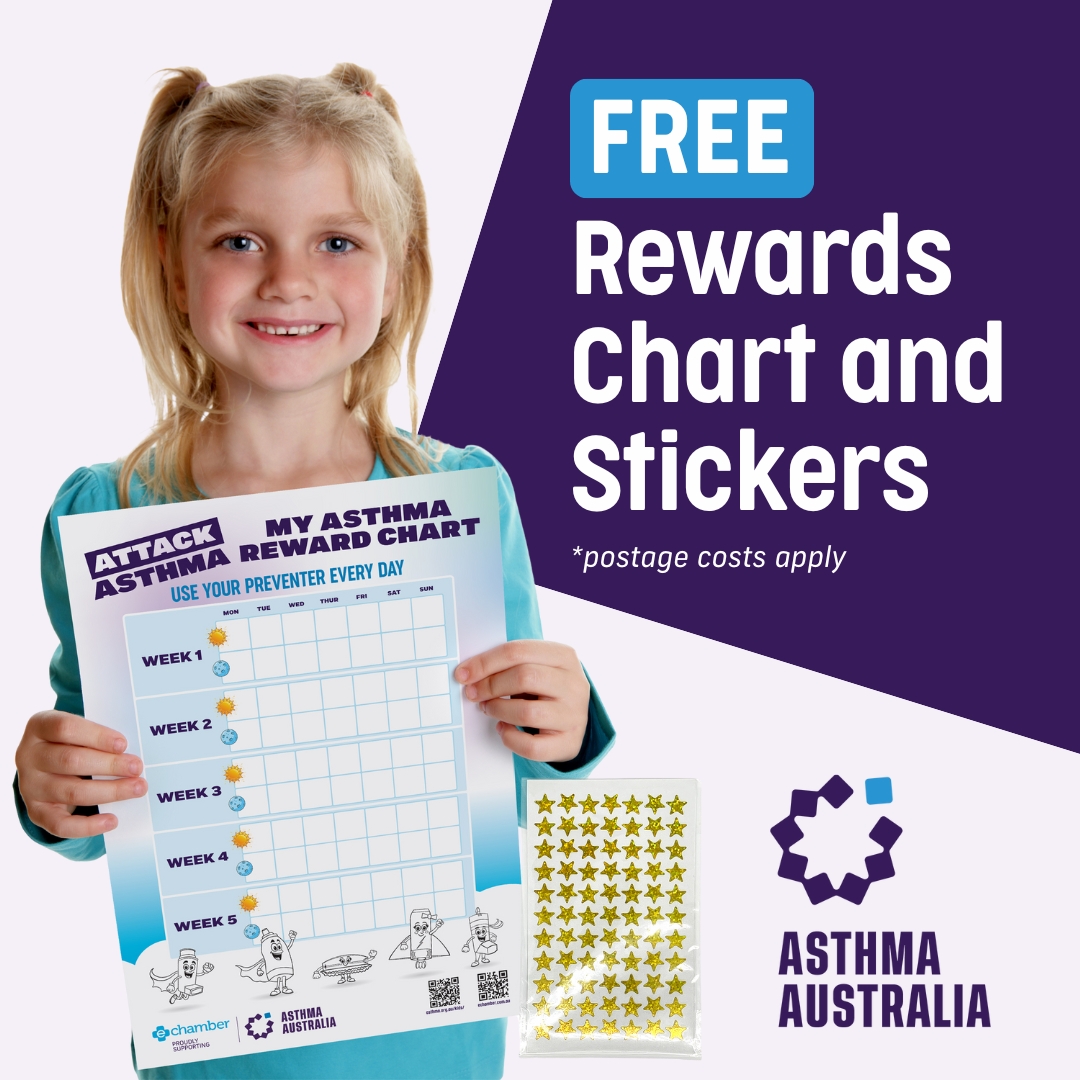Feel good February
Did you know that this month is ‘Feel Good February‘? A month dedicated to lifting the positive feelings of others by promoting good deeds and random acts of kindness.
We know that 2020 was a challenging year. We also know from the work done in our Smoke Impact Survey and COVID19 and Asthma work, that mental health for people with asthma was and continues to be largely impacted.
When it comes to good asthma management, we don’t just look at your asthma, or the way you breathe – we look at all the contributing factors that impact your health and wellbeing. We know that emotions, stress, anxiety, depression, as well as environmental triggers such as air quality, allergies, or other health conditions can bring on asthma symptoms, slow or sudden flare ups/ attacks.
In the spirit of ‘Feel Good February’, we are going to share just a few ways you can live well with asthma.
How to live well with asthma
Well-managed asthma means you can live your life freely.
Asthma is a lifelong condition, and although your asthma may play up, there are ways to live a healthy life and reduce the risk and frequency and severity of flare ups.
Having a healthy and active lifestyle not only contributes to a healthy body and mind, but it has also been known to improve your overall lung health. Read the research by leading respiratory physician and clinical scientist Professor John Upham here.
Here are additional ways to live well with asthma:
Healthy eating
We know that healthy eating and a diet of fresh foods and vegetables is an important part of asthma management.[i] Healthy eating also has a great impact on your general health and wellbeing.
Aim for five servings of vegetables and two serves of fruit every day. These foods are high in antioxidants and may reduce your risk of an asthma flare-up compared to a diet with fewer fruits and vegetables.
Try to limit takeaway and processed foods. These foods are high in saturated fats, which promote inflammation and may increase your risk of poor asthma control.
Exercise and asthma
Exercise is important for everyone. According to the Australian Asthma Handbook, it is recommended that physical training for adults and children with asthma, is part of overall asthma management, for its beneficial effect on quality of life. Australian guidelines recommend at least half an hour of moderate intensity activity for adults every day.
According to the Australian Asthma Handbook, regular, moderate intensity physical activity improves cardiopulmonary fitness and quality of life in people with asthma. [ii]
Some people with asthma avoid activity because of the common exercise-induced bronchoconstriction (EIB). But not everybody that has asthma has EIB and some people with EIB may not have asthma.
There is evidence to suggest a good warm up and regular prevention, in line with your written Asthma Action Plan, can help you get into a healthy routine.
To find out more read our blog on asthma and exercise.
Make a change
Looking for a reason to kick an old habit. ‘Feel Good February’ may be the encouragement you need.
Having asthma and continuing to smoke increases the risk of lung damage and it can increase the risk and number of asthma flare ups and symptoms.
Smoking is a very common trigger for asthma, which not only affects the smokers themselves, but it also affects other people around them. Smoking remains the single most preventable cause of ill health and death in Australia. [iii]
You may not know, but smoking can also reduce lung function, and the effectiveness of some asthma medications.
And in the long term, smoking can lead to a condition called Chronic Obstructive Pulmonary Disease (COPD), which includes chronic bronchitis and emphysema as well as other chronic health conditions as well.
There are many resources that can help you quit. One of these is the Quitline (13 QUIT or 13 7848). As well as having lots of information available about quitting, you can talk to a counsellor or request a call back. You may also like to download our free resource here.
You can talk with your doctor and pharmacist as well on how they can assist with you being a non-smoker or call 1800 ASTHMA (1800 278 462) and our Asthma Educators can start you on your way.
Reduce your exposure to triggers
If you know pollens, smoke or other irritants can trigger your asthma, avoid them as much as possible.
Get a flu shot each year to reduce your chance of getting influenza, which can also impact your asthma if flu and viruses are a trigger for you.
Likewise, keep following COVID safe practices and maintain hand hygiene, so you reduce your risk of picking up germs generally. There is evidence to show the annual numbers in flu cases for 2020 drastically reduced which could be attributed to good hygiene practices and social distancing.[iiii]
Learn more about asthma triggers here.
Mental health and asthma
Living well also means feeling well mentally. There are close interconnections between lifelong illnesses, like asthma, and mental health.
People who have mental health conditions are more likely to experience asthma. 1 in 5 women who experiences mental ill health also has asthma. [iv]
Staying socially active, getting out and about, and training yourself to think differently about thoughts and emotions – using cognitive behaviour therapy – can help some people. Others may require medical assistance or medications.
If you think that you may be experiencing asthma symptoms, stress, anxiety, depression or simply struggling with day-to-day life, talk to your doctor for personal health advice.
Watch a Facebook recording with Peter Diaz, mental health author and CEO of the WMHI, on 7 Practical Ways to Improve Your Mental Health and Wellbeing.
Have a laugh
There’s nothing like a good laugh to make you feel better, and it’s great for your overall health!
Although laughter can be a trigger for some people with asthma, laughter should not be avoided! If you find laughter makes your asthma symptoms worse make an appointment with your doctor for an asthma review. You should be able to live freely with asthma.
So, get those belly laughs going and take time to
- Catch up with friends and loved ones whether that be face to face or digitally and
- Take a break from the social media; news and current affairs that can consume our lives and watch a good comedy, or other light-hearted, feel-good entertainment
Stay up to date with your asthma
If you haven’t seen your doctor recently for an asthma review, book in today. There has been changes to asthma medicines and treatments recently. It is important that you know your options.
They can update your written Asthma Action Plan and check your device technique to make sure it is all up to date.
Remember to take your preventer even when you feel well. Having a good asthma routine can reduce asthma flare ups and keep those symptoms under control.
Together, you can also make sure your management is under control, so you can live your life freely.
If you are not sure about your asthma management, call our Asthma Educators on 1800 ASTHMA (1800 278 462).
Have a chat
Book in a time to speak with our Asthma Educators about your asthma.
Our Asthma Educators are:
- Here to answer your asthma questions and provide education and support for not only people with asthma but their family or carers
- Trained to help you with Australian best-practice asthma management and evidence-based information
Give them a call today on 1800 ASTHMA (1800 278 462) to get the support you need and get back to living freely.
Have you registered for Asthma Assist? Join more than 32,000 Australians and get support to manage your asthma.
Feel good about yourself and take the time for a breather and focus on you.
References
[I] http://www.asthmahandbook.org.au/clinical-issues/food/healthy-eating
[ii] https://www.asthmahandbook.org.au/clinical-issues/exercise/eib/management/adults
[iii] Australian Institute of Health and Welfare 2012. Australia’s health 2012. Australian’s health series no. 13. Cat. No. AUS 156. Canberra: AIHW
[iiii] https://www1.health.gov.au/internet/main/publishing.nsf/Content/cda-surveil-ozflu-flucurr.htm
[iv] https://asthma.org.au/about-us/media/australians-with-mental-health-conditions-at-increased-risk-of-asthma/
[vii] Wood, L G, Garg, M L, Gibson, P G. A high-fat challenge increases airway inflammation and impairs bronchodilator recovery in asthma. J Allergy Clin Immunol. 2011; 127: 1133-1140.
[viii] Wood, L G, Garg, M L, Smart, J M, et al. Manipulating antioxidant intake in asthma: a randomized controlled trial. Am J Clin Nutr. 2012; 96: 534-543.





 1800 278 462
1800 278 462





